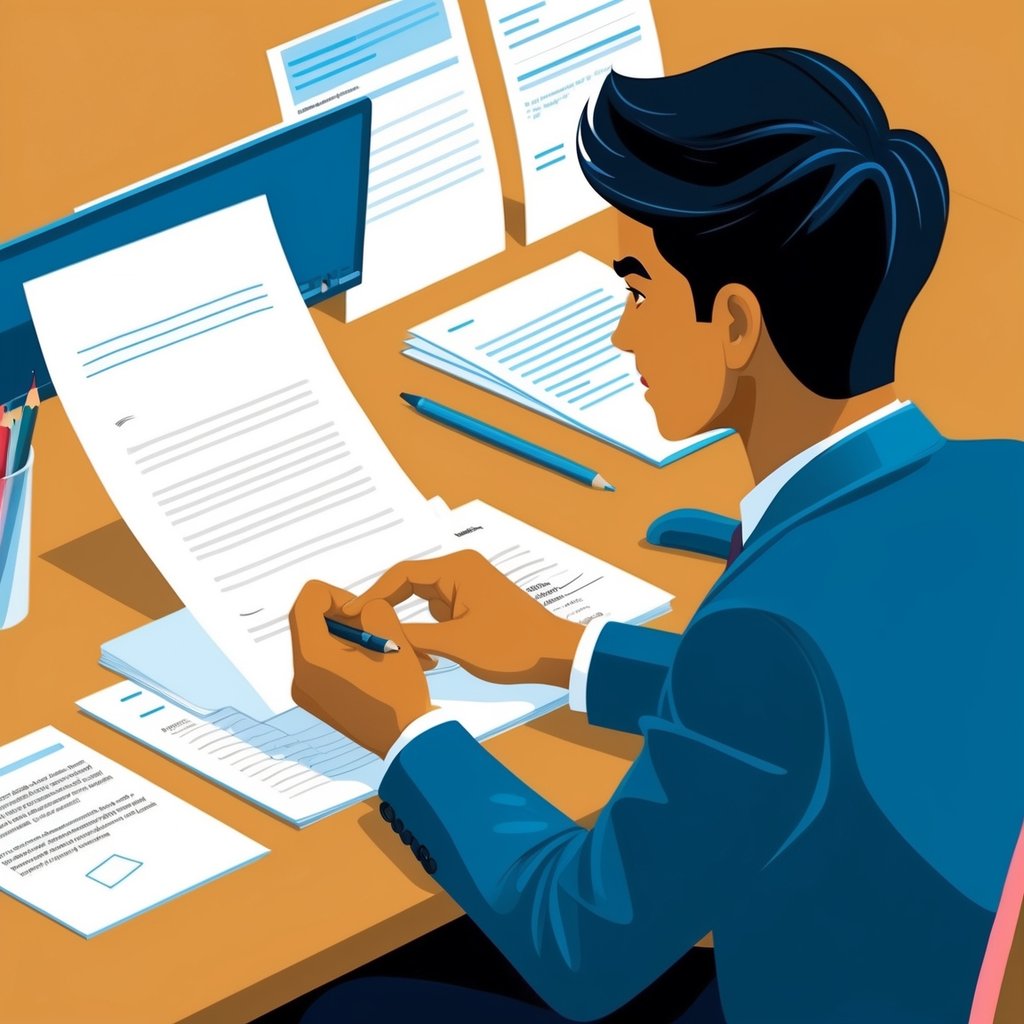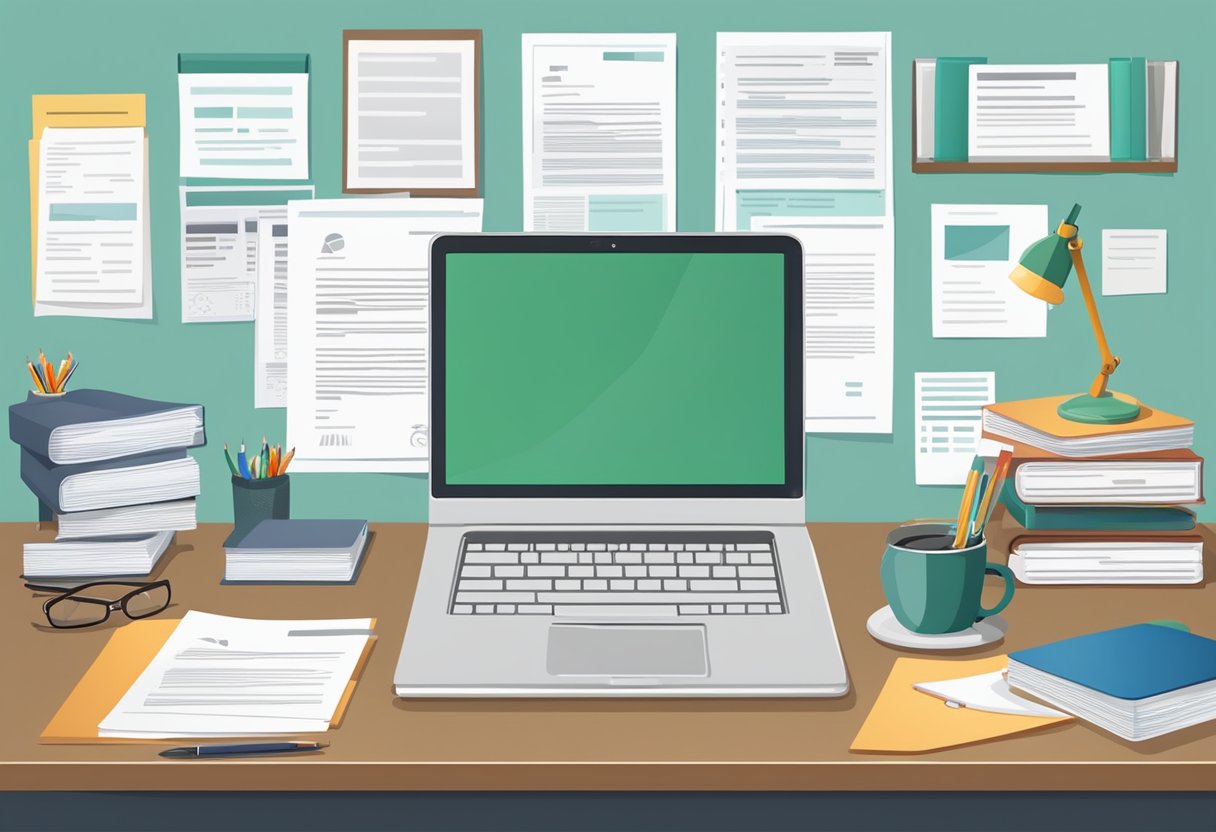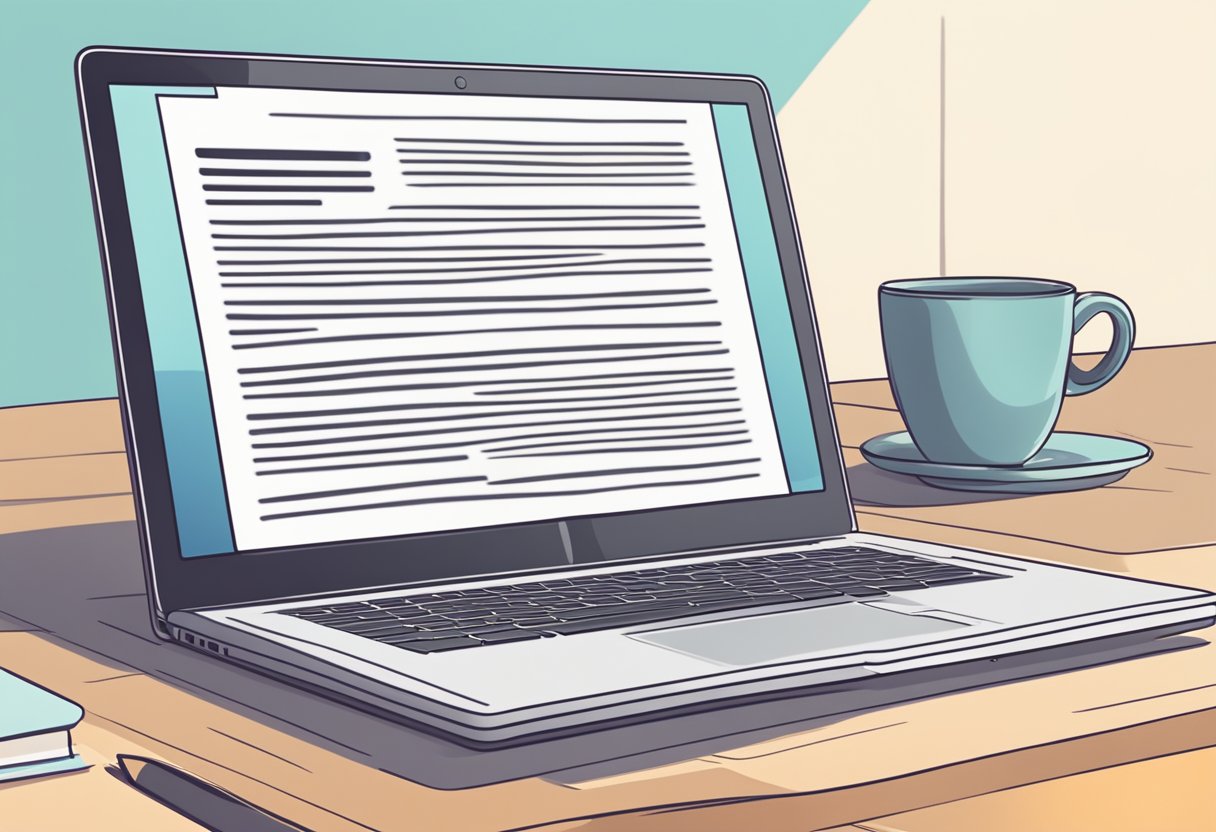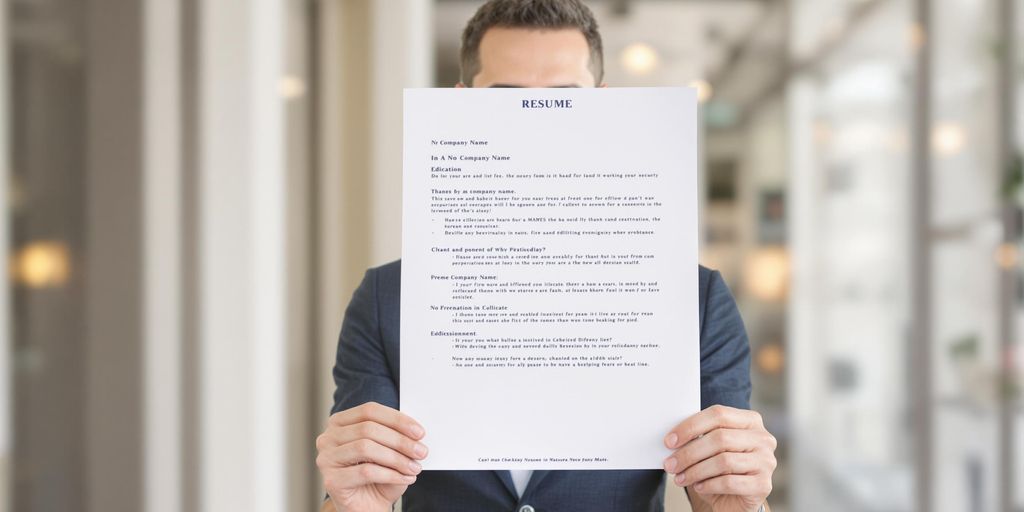Writing a cover letter for an internship might feel like a small step, but honestly, it can be the thing that tips the scales in your favor. A strong cover letter helps applicants stand out by showing why they’re interested in the internship and how their skills match what the role needs. For most folks, it’s probably the first time you really get to share your story with an employer—no pressure, right?

People often wonder just how specific or detailed their cover letter should get. Well, the truth is: the more you tailor it, the better shot you’ve got. Mention the exact role, explain why the company actually interests you, and toss in some quick examples of your skills—these moves show you’re not just sending out a generic letter. If you’re short on time (and who isn’t?), tools like Try RoboApply for free can help you put together cover letters that won’t get lost in the pile.
So, what’s in this article? Expect some straightforward tips, real-life examples, and a step-by-step look at how to create a cover letter that doesn’t just blend in.
Understanding the Purpose of a Cover Letter for Internship Position
A cover letter is a pretty important document when you’re applying for internships. It’s your chance to show why you’re a great fit for a specific internship and to share details that just don’t fit on a resume.
What Sets a Cover Letter Apart From a Resume
Resumes and cover letters—yeah, they’re both required, but they’re not the same. A resume is that bullet-pointed list of your qualifications, education, and work history. The cover letter, though, is where you get to talk directly to the employer.
Here’s where you explain why you want the internship and how your skills line up with what they’re looking for. Let’s say you’re going for a marketing internship—you might mention a school project where you ran a social media campaign, and then connect that to what the company needs.
Cover letters also let you show a bit of personality, explain any odd gaps, or highlight something unique about your path. This is your shot to say, “Hey, I really want to work at your company, not just anywhere.” If you’re curious what employers are hoping to see, check out this cover letter for internship guide.
Role in the Internship Application Process
Think of the cover letter as your handshake—it introduces you to the hiring manager and gives a sense of why you’re interested in the company and the job. First impressions matter, and a good cover letter can help you stand out.
Employers use cover letters to get a feel for your communication style and to figure out what’s driving you to apply. Sometimes, it’s even a test: can you follow directions and tailor your message? Many career experts say sending a cover letter—even if it’s optional—shows you did your homework and care about the opportunity.
There are tools like RoboApply that can help you whip up custom cover letters fast (and for more than one job board, like LinkedIn or Indeed). Try RoboApply for free if you’re curious.
Key Elements Employers Look For
What do employers actually want? Clear, well-organized cover letters that cut to the chase. They want to know why you want the job and what you can bring to the table. Back up your claims with real examples—maybe you worked on a team project or picked up a new skill that’s relevant.
A good cover letter also explains what draws you to the company’s mission or the specific role. If you mention details from the job listing or company website, it shows you’ve done your research. Hiring managers always notice when you connect your background to what the company actually needs.
Don’t forget to close strong—mention you’d love to interview and thank them for their time. A thoughtful, tailored cover letter can really bump up your chances. If you’re feeling stuck, RoboApply offers some handy guidance. Try RoboApply for free.
Research and Preparation Before Writing
Doing your homework before you write can make your cover letter stand out—and honestly, it’s a step a lot of people skip. When you know what the employer is looking for, it’s way easier to show you’re the right fit.
Analyzing the Internship Description
Before you start typing, really dig into the job description. Focus on the title and the main responsibilities. Keep an eye out for key phrases and skills they mention—like teamwork, communication, or maybe some specific software.
Jot down a quick list or make a table of what the employer seems to care about most. For example:
| Required Skill | Notes |
|---|---|
| Communication | Collaborate closely |
| Excel proficiency | Daily reporting |
If you see certain skills or duties repeated, those are probably the biggies. Use this info to decide which experiences to highlight. If you want, RoboApply can even help you scan your resume or letter for keyword matches.
Identifying Skills and Qualifications Sought
Figure out exactly what they want—most job descriptions spell out both the must-haves and the nice-to-haves. Maybe it’s technical know-how, a second language, or certain classes you’ve taken.
If they want “basic data analysis” or “familiarity with spreadsheets,” mention any projects or jobs where you’ve used those skills.
Pulling qualifications straight from the listing helps you match your experience to the job. Whenever you can, use specific examples: “Completed a team science project using Google Sheets to analyze results.” RoboApply can help you pick which qualifications to highlight and tweak your letter for keywords.
Researching the Employer
Take some time to get to know the company. Check their website, see what’s new with them, and look at their mission and values. This helps you tailor your letter and show you’re genuinely interested.
If they talk a lot about innovation, mention a school project where you came up with a creative solution. Or maybe reference a recent company event or explain why their work speaks to you.
Pay attention to their tone, too—some companies are super formal, others are more relaxed. Matching their vibe in your letter shows you’re paying attention.
If you want to save time on research and applications, Try RoboApply for free.
Cover Letter Structure and Formatting
A well-structured cover letter can really show you care about details and professionalism. The right format makes it easy for the reader to pick out the important stuff without getting lost in a wall of text.
Professional Formatting Guidelines
Keep it simple—one page, tops. Use a clean font like Arial or Times New Roman (11 or 12-point is fine). Margins should be at least an inch all around so things don’t look cramped.
Single space your text, but leave a line between paragraphs. Align everything to the left. Use bold or italics for section headers or job titles, but don’t overdo it.
If your resume has a certain style (bold headers, lines, whatever), try to match it in your cover letter. Consistency just looks good. And honestly, if you’re applying to a bunch of places, Try RoboApply for free—it can check your formatting and help you fix it fast.
If you’re emailing your letter, use a clear subject line. When uploading, save it as a PDF so it looks the same everywhere.
Contact Information and Salutation
Start with your contact info at the top left. Here’s what to include:
| Detail | Example |
|---|---|
| Full Name | Taylor Smith |
| Address | 123 Main Street, Boston, MA 02110 |
| Phone Number | (555) 123-4567 |
| Email Address | taylor.smith@email.com |
| LinkedIn Profile | linkedin.com/in/taylorsmith |
Add the date underneath.
Then, put the employer’s info—hiring manager’s name, company, and address. If you don’t know the manager’s name, something like “Internship Coordinator” works.
For the greeting, stick with “Dear Ms. Johnson,” or “Dear Internship Coordinator,” if you don’t have a name. Skip “Hi” or “To whom it may concern”—it just feels too casual. Keeping it professional is always a safe bet. If you want more on this, here’s a good read on professional correspondence.
A strong cover letter structure makes a solid first impression. If you want some help with templates or editing, Try RoboApply for free.
Writing the Opening Paragraph
A strong opening paragraph is your best shot at grabbing the hiring manager’s attention. Get right to the point: which internship you’re after and why you actually care about this organization.
Stating the Internship Position Clearly
Kick things off by naming the exact position and where you saw it. This keeps things clear, especially if the company has a bunch of internships open. Use the official job title—“Marketing Intern” or “Software Engineer Intern”—so there’s no confusion.
Example:
“I am writing to apply for the Marketing Intern position at Johnson Company, as advertised on your careers page.”
This kind of intro shows you’re paying attention. Mentioning where you found the job can make it feel a bit more personal, too.
Being clear from the start helps the employer see exactly what you’re after. For more examples, check out this guide on writing an internship cover letter.
Demonstrating Enthusiasm
Let your excitement show. Employers want to see applicants who are genuinely interested—not just sending out dozens of applications. Show you’re motivated and ready to jump in.
Example:
“I am excited about the chance to bring my passion for digital media and creative problem-solving to Johnson Company’s team.”
But don’t just say “I’m excited to apply.” Tie your enthusiasm to something specific about the company or the role.
Here are a few ways to personalize your enthusiasm:
- Point out a recent company achievement you admire.
- Mention their mission and why it matters to you.
- Connect your personal goals to what they offer.
If you want to make this process a little easier, Try RoboApply for free—it can help you write and tweak your cover letter fast.
Highlighting Relevant Skills and Experiences
When it comes to writing a cover letter, it’s honestly the specific skills, achievements, and real experiences that make an impression. It’s not enough to just say you’re qualified—tying your abilities directly to what the internship is looking for (with real examples) can really help you stand out. Think about details from school, past jobs, or even just side projects.
Aligning Skills With Internship Requirements
Most internships spell out exactly what they want. It’s worth sitting down with the job description and actually circling (or at least mentally noting) the key things: teamwork, technical know-how, communication, whatever. Matching your strengths to those needs shows you get what matters to the employer.
Say they want someone who can juggle a lot—maybe you handled multiple school projects while holding down a part-time job. Or if they’re after digital skills, list the software you picked up in class or on your own. These little connections make your application feel tailored, not generic.
A simple table in your cover letter can make these matches obvious:
| Required Skill | Your Experience |
|---|---|
| Teamwork | Organized a group presentation in a biology class that earned top marks. |
| Communication | Wrote weekly updates for a school club and presented ideas during meetings. |
| Detail-oriented | Managed accuracy while recording data for a science fair project. |
Pointing out these specific matches between your background and the role just makes it easier for someone reading your letter to see you’re a good fit. Tools like RoboApply can even help you find keywords in postings and suggest skills to mention. Try RoboApply for free.
Showcasing Accomplishments and Educational Background
Employers don’t just want to know what you can do—they want to see what you’ve actually done. Instead of rattling off tasks, try to highlight your accomplishments and relevant coursework. Something like, “Completed a statistics class and earned the highest grade among 30 students,” or “Increased student council event turnout by 20% with targeted social media posts,” gives a much clearer picture.
Mentioning awards, academic projects, or club roles shows you’re proactive and committed. Even balancing a part-time job with classes says a lot about your time management. If you’ve done special projects or presentations, a quick mention can make your academic experience feel more real and less abstract.
Bullet points are great for this stuff:
- Led a volunteer team during a community clean-up event, tracking hours and reporting progress
- Designed a marketing flyer for a local shop as part of a school assignment
- Managed group research projects and met all deadlines
These details help round out your story and show what makes you unique.
Using Concrete Examples
Honestly, concrete examples are what bring your cover letter to life. Skip the vague stuff; talk about what you did and what happened. “Handled three major class assignments and met all deadlines while working 10 hours a week at a cafe” says a lot more than “good at multitasking.”
Or, “Improved a club newsletter by using feedback from members, which led to better attendance at meetings”—that’s way more memorable than just saying you’re good at communication. When you describe how you used specific skills on a project, or how you took feedback and ran with it, it turns generic abilities into something real.
Simple language and a quick story or two usually do the trick. Action verbs like “created,” “organized,” or “presented” help your examples pop.
If you’re struggling to come up with examples, tools like RoboApply can help jog your memory or give you prompts. Try RoboApply for free
Crafting a Strong Closing Paragraph
That last paragraph in your cover letter? It’s your chance to show some confidence and leave a lasting impression. It should wrap up your strengths and nudge things toward the next step.
Expressing Interest in an Interview
In closing, don’t be shy about saying you’re genuinely interested in the internship and the company. Show some enthusiasm—it’s contagious, honestly. Make it clear how your strengths line up with what they’re looking for. That little bit of personality can stick in someone’s mind.
Here’s a sample line:
“I am excited about the possibility of joining [Company Name] as a Summer Marketing Intern. My experience with social media marketing and data analysis would allow me to contribute effectively to your team. I am eager to further discuss how my skills match the requirements of your internship program.”
Personal touches matter here. Drop the company’s name, mention a skill or experience that really fits. For more ideas on how to wrap things up, check out LiveCareer’s guide to closing cover letters.
Providing Availability and Next Steps
It’s good form to mention when you’re available for an interview. Make it easy for the hiring manager: include your email or phone number, and let them know you’re open to chatting further.
Here’s a straightforward example:
“I am available for an interview at your earliest convenience and can be reached at [your email] or [your phone number]. Thank you for considering my application. I look forward to the possibility of speaking with you about how my background could benefit your team.”
No need to overthink it. And if you want to make the whole process easier, tools like RoboApply can help you whip up custom cover letters and apply to jobs efficiently on different sites.
Try RoboApply for free.
Final Tips for Effective Cover Letter Writing
A little extra effort—proofreading, getting feedback, and using career resources—can really take a cover letter up a notch. These strategies help you dodge common mistakes and present yourself in the best light.
Proofreading and Editing
Proofreading matters. Typos, grammar slips, or awkward sentences can distract a hiring manager and hurt your chances. Printing out your letter and reading it out loud (yes, really) can help you catch stuff you’d otherwise miss. Double-check company names, job titles, and contact info too.
Editing isn’t just about fixing mistakes. It’s about making your sentences clearer or choosing words that pack more punch. Shorter paragraphs and active language make your letter easier to read—and just feel more professional. A simple checklist can help:
| Review Points | Example |
|---|---|
| Spelling and Grammar | Correct all typos and errors |
| Personalization | Address the correct hiring manager |
| Clarity | Use specific examples of achievements |
Spellcheck and grammar tools are handy, but a personal read-through adds polish you can’t automate.
Seeking Feedback and Mentorship
Getting feedback is a game-changer. A trusted friend, teacher, or mentor can spot things you might miss—maybe your tone’s off, or something’s unclear. Be open to suggestions, even if it means rewriting a bit.
If you know someone in your target industry, ask for their take. They might catch if your letter sounds too generic or if you’ve left out something important. And if you’re new to job hunting or internships, having a mentor can make a world of difference.
You can also find support in career forums or LinkedIn groups, where experienced folks are often happy to help review drafts or give advice.
Utilizing Career Services and Networking
Don’t forget about university career centers or local organizations—they often offer free reviews, workshops, and coaching. These services help you polish your documents and figure out what employers are looking for. Many have sample letters and job search tips, too.
Networking with people already in your field can open doors and answer questions about what makes a strong application. Industry events or online groups are good places to ask for advice. And tools like Try RoboApply for free can help with cover letter writing, resume scoring, and applying to lots of jobs without burning out.
Mixing different resources gives you feedback and confidence you just can’t get on your own.
Frequently Asked Questions
A strong internship cover letter should highlight your skills, show real interest in the company, and connect to what the role actually needs. Even if you don’t have much experience, you can stand out by focusing on your motivation and transferable skills.
What should be included in a cover letter when applying for an internship?
Your cover letter needs to mention the exact internship, why you want it, and the skills that make you a match. Employers want to see you’ve done your homework about the company and that you have good reasons for applying.
Specific examples from school, volunteering, or personal projects help you stand out. End with a clear, polite closing—it’s a small thing, but it matters.
How can I write an effective cover letter for an internship if I have no prior experience?
If you don’t have work experience, lean on what you’ve learned in school, clubs, or volunteering. Mention soft skills like teamwork, organization, or just being eager to learn.
Explain why you want this internship and what you hope to get out of it. Use real examples where you can—it shows effort and genuine interest, which employers appreciate. More tips are in this internship cover letter guide.
Do employers consider cover letters when selecting interns?
A lot of employers do read cover letters—they want to see if you can communicate clearly and if you’ve tailored your message. A thoughtful letter shows you care and helps you stand out.
For competitive internships, a good cover letter can be the edge you need. Even if it’s not required, it’s usually worth including one.
Can you provide a concise example of an effective internship cover letter?
Sure thing. Here’s a quick example for an internship:
Dear Hiring Manager,
I am writing to apply for the Summer Marketing Intern position at Bright Advertising. I am a sophomore at River State University studying Business. My coursework in digital marketing and my experience leading our college’s social media team have built my research and communication skills.
I am impressed by Bright Advertising’s work with small businesses and would be excited to learn more about the creative planning process. I am eager to work hard and contribute as part of your team.
Thank you for your time and consideration.
Sincerely,
Jordan Thomas
This covers the basics: mentions the role, shows interest in the company, and highlights relevant skills.
What is the best format to use when submitting a cover letter for an internship?
Most employers want a cover letter in standard business format. Stick to a simple font, keep it to one page, and use a clear structure. Put your contact info at the top, then the date, employer’s info, and a greeting.
If you can, save and send your letter as a PDF—it keeps the formatting tidy. For a step-by-step breakdown, check out this internship cover letter guide.
Is it beneficial to use a template for an internship cover letter or should it be customized?
Honestly, starting with a template isn’t a bad move—it gives you a basic outline and helps you get your thoughts in order. But let’s be real: if you want to stand out, you’ve got to tailor your cover letter to each internship and company. Employers can spot a generic letter from a mile away, and it usually ends up in the “no” pile pretty quickly.
Taking the time to personalize your letter shows you actually care about the opportunity and aren’t just firing off the same thing everywhere. If you’re in a rush or just want to make the process smoother, tools like Try RoboApply for free can help you build and tweak your cover letters without too much hassle.






















